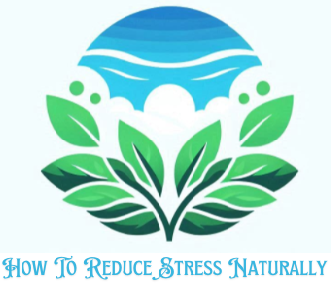What is the best meditation technique for you? How it can help you deal with stress? Today we are going to talk about the best meditation technique. The thing is – not for all people the same method is the best.
Stress is something we all need to deal with in our lives and most importantly to find the perfect way for you to manage it. Meditation is known to be one of the best methods to reduce stress if not the best.

Let’s start by getting to the heart of what meditation really is. It is an ancient practice, with a rich history that goes back thousands of years. Different cultures and traditions have shaped it into what we know today – a diverse collection of practices that all focus on quieting the mind and fostering an inner sense of peace.
You are going to find out about various meditation techniques, like Mindfulness, which is all about living in the present moment, or Transcendental Meditation, which uses a mantra to help the practitioner transcend their current state of mind. There is also Guided Meditation, where you are led by a voice through a meditative journey. And there are also several others that you might like and are according to your personal preferences.
What is best…
So, what’s the ‘best’ meditation technique? We all want to find out that, right? It is not that easy. Honestly, it is personal and related to each individual. We aren’t the same and have different preferences, likes, needs, etc.
What works wonders for one person may not click with another. That is what I always talk about; it goes to almost all subjects, supplements, and techniques. We all are humans, but each of us is unique, not everything works for us the same.
The best approach considers your lifestyle, goals, and comfort level. It is all about finding a technique that feels like a natural extension of your daily routine.
Here you can find more information about meditation, CLICK HERE to see. You can choose different types of meditation to try.
Don’t get me wrong. This is not just about finding a quiet corner to sit in even if that is important too. But it is also about understanding how these practices can lead to amazing and important changes in your life. Studies have shown that consistent meditation can significantly reduce stress, and in this way improve your mental health and your overall well-being.

With this idea in mind, we can go into the deeper impacts of meditation, for our personal peace, at the physiological and psychological levels. Technically, meditation can change your life if you wish it. This is where the intersection of ancient wisdom and modern science really shines, showing the way to the next part of our discussion: the benefits meditation has on our well-being.
The Science of Calm: How Meditation Enhances Well-being and Mental Health
Meditation is not just a spiritual practice; it’s a well-studied tool that can significantly impact your brain and your mental health. The thing is researchers have been fascinated by how sitting quietly and focusing the mind can lead to deep changes in our neurological structure. For sure, there are also some skeptics.
Now you are going to find out about the neuroscientific perspective, which is quite a revelation. Studies using neuroimaging technology, like MRI scans, show that meditation can increase the gray matter in the brain, particularly in areas associated with memory and self-awareness. It’s like giving your brain a workout that sharpens your mental faculties.
Stress hormones
So let’s talk about stress hormones. When we are stressed, our bodies release cortisol, the ‘stress hormone’, which in high quantities can terribly impact our mental and physical health. Meditation is activating the body’s relaxation response, a state of restfulness and that is the opposite of the stress response. By doing so, it helps in calming our mind and balancing our body’s chemistry.

But please don’t just take my word for it. Studies are showing it works, however it is more than that. Many people have shared their personal success stories, where regular meditation has been a transformative experience. It helped them to stay focused, and reduce stress, anxiety, and even depression. These stories are not only inspiring but also a real-life testament to the benefits of meditation. It is so amazing to hear them or read them.
If you are seeking expert validation, plenty of mental health professionals advocate for meditation. Therapists, psychologists, and psychiatrists often incorporate meditation techniques into treatment plans for mental health issues. We all know meditation techniques have the ability to help cultivate a peaceful mind and improve psychological well-being.
In my opinion, this evidence is more than convincing. It is a green light for anyone considering meditation as a pathway to mental health. Okay, you have this information, and now time to put it into practice. That is what we will explore in the next section and we will talk about integrating meditation into your everyday life.
Practical Steps to Integrate Meditation into Your Routine
I am going to walk you through some simple advice to make meditation important in your daily life. First, if you’re new to the game, it is essential to start slow and stay patient with yourself. You might begin with just five minutes a day and increase the duration as you grow more comfortable.
Video made by Goodful
Creating the perfect environment is key to a consistent practice. Firstly, I suggest you choose a quiet space where you most like will not be disturbed. Secondly, pick a part of your day when you are free and can be uninterrupted for a while.
Now, while forming any new habit can have its setbacks, meditation should be no exception. It is not easy to start something new and stick with it. You might face some resistance, especially at the start. But you don’t need to worry too much about this, because it is all a part of the process. Just stay committed, and remember, consistency is important in everything you do.
And finally, remember to never measure your progress by how long or how often you meditate. Instead, reflect on the positive changes in your life. Are you feeling less stressed? Is it easier to focus at work or school? These benefits, over time, are the true hallmarks of meditation’s impact on your well-being.
Conclusion
Now you see there is no right answer for everyone – what is the best meditation technique for you? There is no easy answer to this question as you found out in this article. Basically, it is personal and it is related to each person. You can choose from different techniques and find out which method is best for you.
As most of us deal with stress in our lives, meditation is a great way to manage it and minimize it, making you calmer and improving your mental and overall well-being.

What is the best meditation technique for you? What do you think about this article? Do you have any advice or suggestions? Please let us know your thoughts and write in the comment section below.
If you want to learn more about meditation, CLICK HERE to find out more.
I would like to hear from you, so please leave me a comment below to let me know if this article helped you.
If you want to know more about ways how you can manage stress, please subscribe to this blog, and you will receive a notification, when a new post is published.
If you think this article is helpful, please share it.
Thank you! Have a nice day! Until later
Linda Mo
Founder and owner of How To Reduce Stress Naturally
